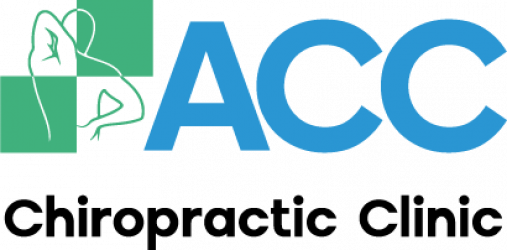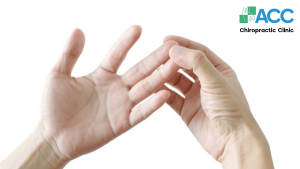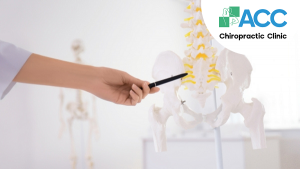Contents
Calf pain is a frequent issue, often arising at the end of the day following intense physical activity or repetitive leg movements. In most cases, it can be relieved with appropriate home treatments. However, if the pain becomes severe, it is essential to seek medical attention promptly.
Understanding Calf Pain
Calf pain is characterized by a dull, aching sensation in the lower leg, often accompanied by heaviness and difficulty in movement, especially while walking.
Rather than being localized to a single spot, the pain may radiate from the buttocks or thighs down to the calves. Since it does not stem from the bones, the symptoms may initially be subtle, making it harder for individuals to recognize the condition early and seek timely medical attention.
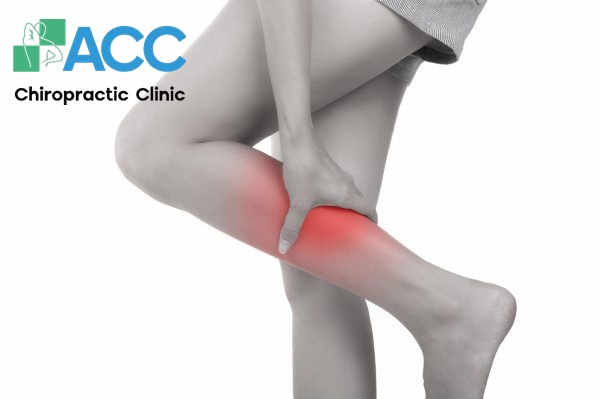
Diseases that Cause Sudden Calf Pain
Sudden calf pain and fatigue can occur without any intense physical activity, and it may be a sign of an underlying health condition. Some of the diseases associated with this type of pain include:
Achilles Tendonitis
The Achilles tendon, which connects the calf muscle to the heel bone, can become inflamed due to overuse or injury. This can lead to calf pain, stiffness, and numbness, particularly in the morning, as well as limited foot flexibility.
Varicose Veins
Varicose veins occur when the valves in the veins of the legs become weakened, causing blood to pool and veins to become dilated. This condition can lead to symptoms such as cramps, calf pain, numbness in the feet, and is especially problematic at night, causing sleeplessness.
Sciatica
Sciatica is caused by compression of the sciatic nerve, often due to a herniated disc in the spine. This leads to pain and numbness in the calf, thigh, and lower back, significantly reducing leg mobility if not treated properly.
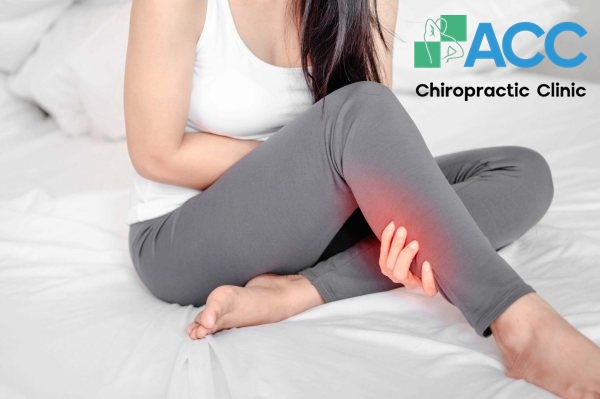
Restless Legs Syndrome (Wittmaack–Ekbom Syndrome)
This neurological disorder is common in older adults and results in a strong urge to move the legs, often accompanied by pain in the calves, especially during rest or at night, which can interfere with sleep.
Diabetic Peripheral Neuropathy
Diabetic peripheral neuropathy leads to intense pain, numbness, and tingling in the calves and feet. If left untreated, nerve damage can result in a complete loss of sensation and, in severe cases, disability.
Other causes of numbness and fatigue in the calves
In addition to medical conditions, several other factors can contribute to calf pain, including:
Muscle Tension
Pain in the calves while walking may indicate a muscle strain. A strain occurs when the muscles at the back of the leg are injured, leading to pain, stiffness, and potentially affecting the functionality of the calves, feet, ankles, and knees.
Weather Changes
Calf pain is more likely to occur upon waking in the summer, as elevated vitamin D levels trigger the body’s natural balancing process. This can lead to discomfort and pain in the calves.
Nutrient Deficiencies
A diet lacking essential nutrients such as calcium, magnesium, and potassium can increase the risk of calf pain, along with other bone and joint issues. Deficiencies in these nutrients can contribute to muscle cramps and discomfort.
Medication Side Effects
Certain medications, like Fluvastatin and Atorvastatin, can cause muscle-related side effects, including cramps, fatigue, and frequent pain in the calves and feet. In severe cases, these side effects may limit movement.
Who is Susceptible to Calf Pain?
Certain groups of people are more prone to experiencing calf pain due to the nature of their activities or occupations. These include:
- Sedentary individuals: Those with little physical activity, such as office workers, are at higher risk.
- People who stand for extended periods: Professions like flight attendants, teachers, or those involved in heavy labor, mountain climbing, or frequent travel.
- Those who kneel or sit on their calves often: Such as monks, who adopt these positions frequently.
- People who wear high heels regularly: High heels can strain the calf muscles and contribute to discomfort.
- Athletes in specific sports: Track and field athletes, relay runners, and badminton players are especially prone to calf pain due to rapid acceleration and sudden stops.
Methods to relieve Calf Pain
When calf pain occurs, it’s important to consult a doctor as soon as possible to get a proper diagnosis and treatment plan. Delaying treatment may affect health, mobility, and daily activities. Here are some common methods to help relieve calf pain:
Rest Combined with Hot/Cold Compresses
Initially, rest is essential to avoid further strain. After the pain eases, light activity can help prevent stiffness. To reduce pain and swelling, apply hot or cold compresses to the calf:
- Cold Compress: Use a cold compress or wrap ice in a cloth, then apply to the painful area for 10-20 minutes.
- Hot Compress: Use an electric heating pad or soak a clean towel in warm water, then apply it to the painful calf for 10-20 minutes.
Note: Repeat each compress every 2-3 hours for the best results.
Painkillers
Over-the-counter painkillers like ibuprofen or paracetamol can help relieve calf pain. However, always consult a doctor for appropriate dosage and duration to avoid adverse effects on the stomach, liver, or kidneys.

Chiropractic Adjustment Combined with Physical Therapy – Rehabilitation Program at ACC Chiropractic Clinic
Chiropractic has gained recognition for its effectiveness in musculoskeletal pain relief. Through gentle adjustments, Doctor of Chiropractic can fix the subluxation, reducing pain and enhancing the body’s healing abilities.
ACC Chiropractic Clinic – a member of FV Group & Thomson Medical Group Singapore leads the way in applying Chiropractic care for musculoskeletal pain treatment. Our calf pain program combines Chiropractic Adjustment with Physiotherapy and Rehabilitation Program, using advanced technology Class IV Laser or Shockwave. This combination helps reduce inflammation, accelerates recovery, and improves calf and lower limb mobility.
We also offer specialized manual therapy techniques for muscle tension treatments. This approach helps patients quickly alleviate pain, feel more comfortable, and avoid potential complications.
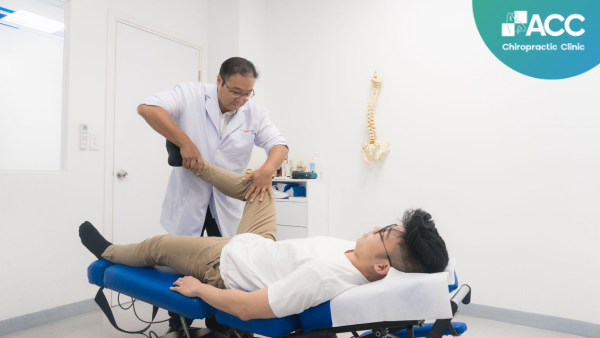
Preventing Calf Numbness and Pain
To minimize calf pain and prevent discomfort, here are some helpful tips:
- Maintain a Healthy Lifestyle: Avoid smoking and alcohol consumption.
- Eat a Balanced Diet: Ensure you’re getting adequate vitamins and minerals in your daily meals. Staying hydrated by drinking 2-2.5 liters of water daily can also help prevent aches and pains.
- Regular Movement for Office Workers:Make it a habit to stand up, stretch, and move around every 1-2 hours to relax your body and prevent muscle stiffness.
- Choose Comfortable Footwear: Opt for sport shoes over high heels to make movement easier and reduce calf strain.
- Exercise Moderately: Avoid overtraining, as excessive exertion can lead to leg pain and fatigue, especially at night.
- Maintain Proper Posture: When standing, keep your back straight and balance your weight evenly on both legs. While sitting, ensure your legs are perpendicular to the floor.
- Warm Up Before Exercise: Athletes should warm up thoroughly before training. Consider using sports support tape, like RockTape, to reduce muscle fatigue and promote injury recovery.
For athletes, RockTape can be especially useful to prevent muscle pain and assist in injury healing during training and competition.
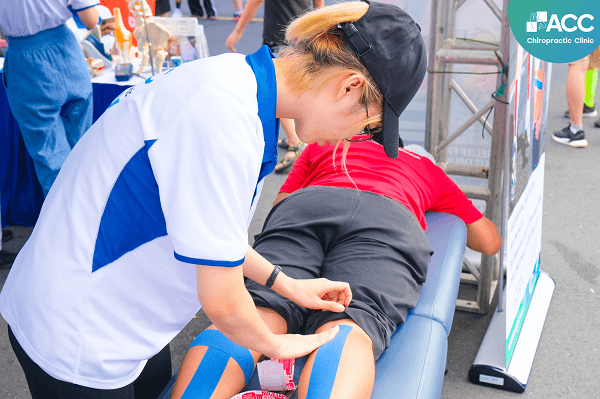
If you’re experiencing calf pain or discomfort, a consultation at ACC Clinic can provide you with timely care from experienced foreign doctors. Contact us now via hotline/Whatapp +84 946 740 066 for more information.
